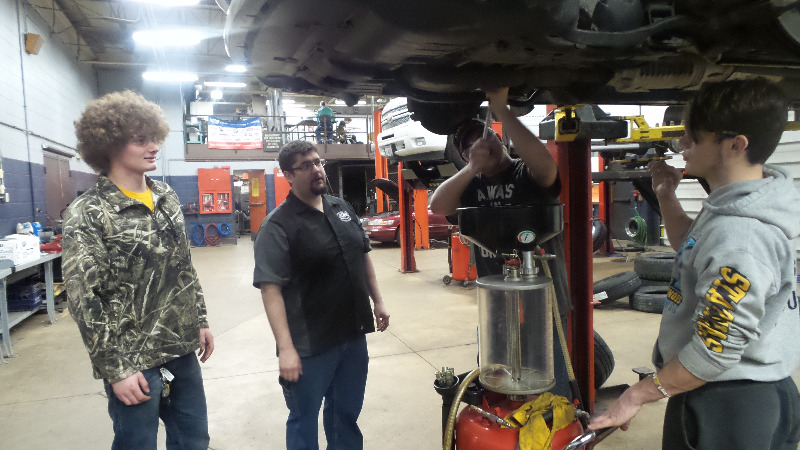Automotive Technology - Opportunities Abound
The Auto Technology Program at Kankakee Area Career Center offers students an exceptional opportunity to combine classroom learning with hands-on automotive training.
Many people don't realize the classroom curriculum incorporates many opportunities to bolster student's learning in various classes in their home school. There is plenty of math, science and vocabulary involved in the automotive repair classroom.
Diagnosing the source of a problem requires good reasoning ability and a thorough knowledge of automobiles. For trainee automotive service technician jobs, employers look for people with strong communication and analytical skills. Good reading, mathematics, and computer skills to study technical manuals are a must. Technicians must also read to keep up with new technology and learn new service and repair procedures and specifications.
According to the US Bureau of Labor Statistics, "The number of jobs for automotive service technicians and mechanics is projected to grow faster than average for all occupations over the next decade. Employment growth will create many new jobs, but total job openings will be significantly larger because many skilled technicians are expected to retire and will need to be replaced." Employment expectations are for a 14% growth between 2006 and 2016, compared to 10 percent for all other occupations.
Median hourly wage of automotive service technicians and mechanics, including commission were $16.24 in May of 2006. The middle 50 percent earned between $11.96 and $21.56 per hour. According to the US Bureau of Labor Statistics, the median annual earning sin the industries employing the largest number of service technicians were as follows:
| Local Government, excluding schools | $19.07 |
| Automobile Dealers | $18.85 |
| Automotive repair and maintenance | $14.55 |
| Gasoline stations | $14.51 |
| Automotive parts, accessories, tire stores | $14.38 |
There are many, success stories for students who have pursued careers in automotive technology following their years here at KACC. Some succeeded through entry level positions, learning and working on-the-job, and others went on to vocational schools prior to entering into the workforce.



 Launch the media gallery 1 player
Launch the media gallery 1 player